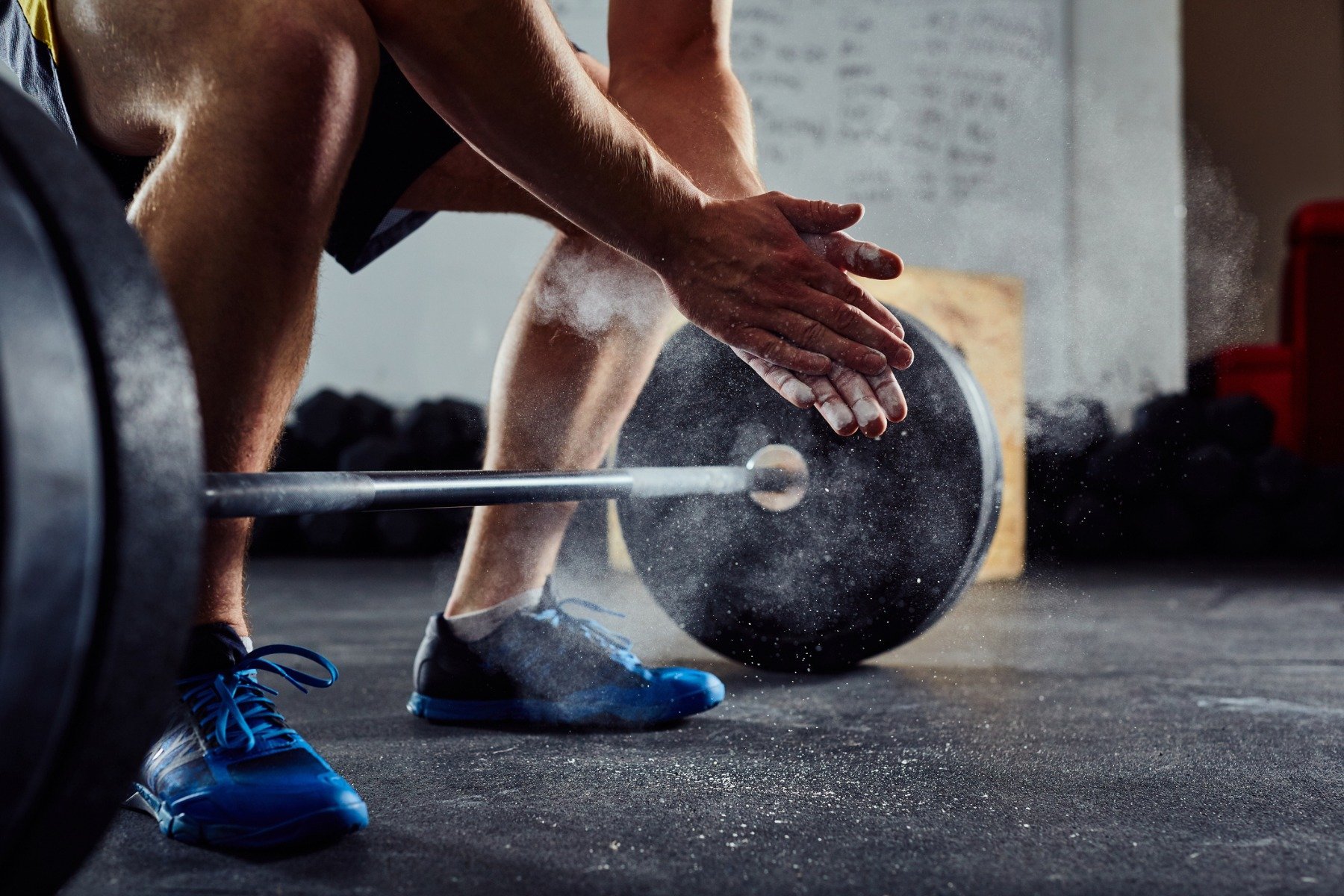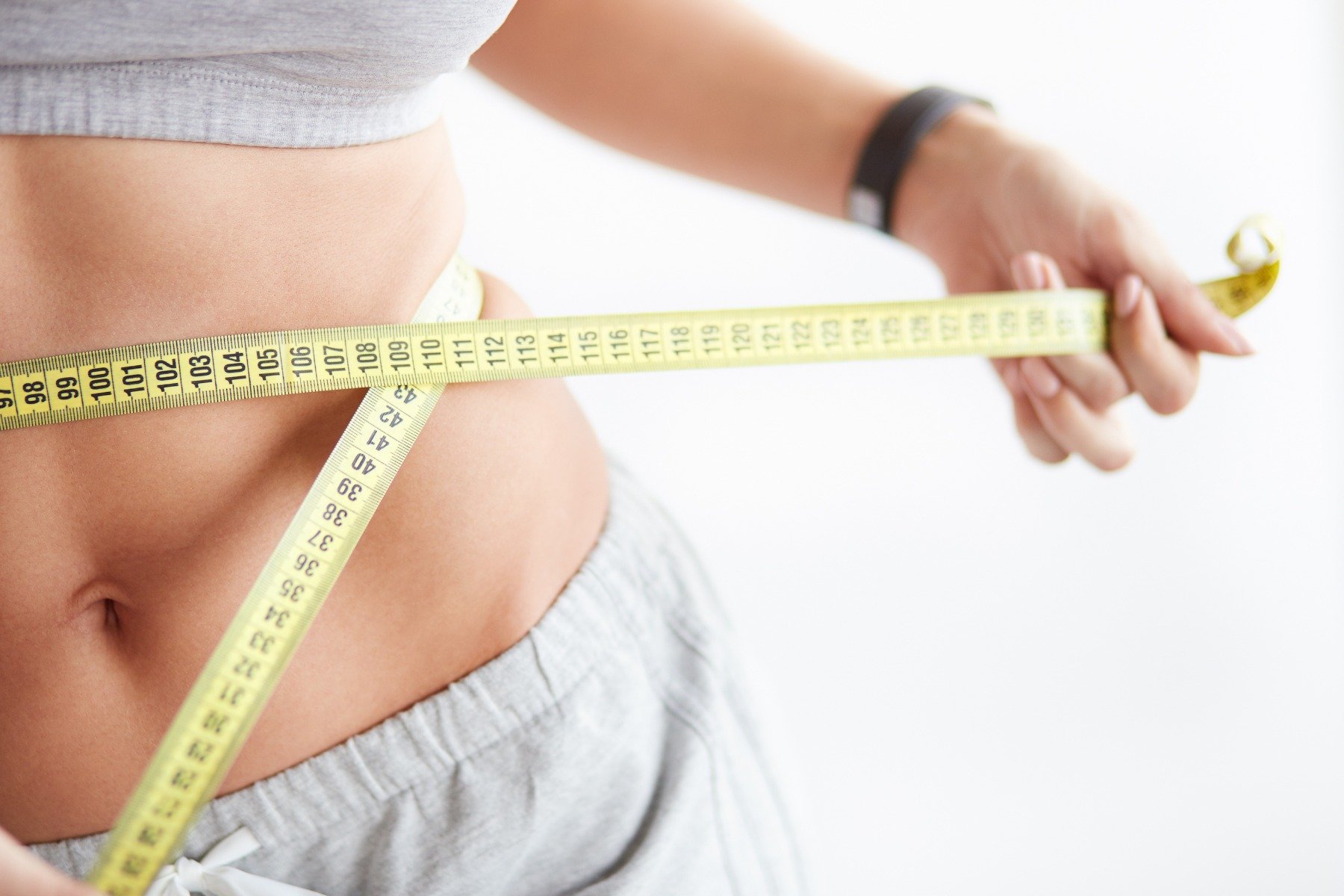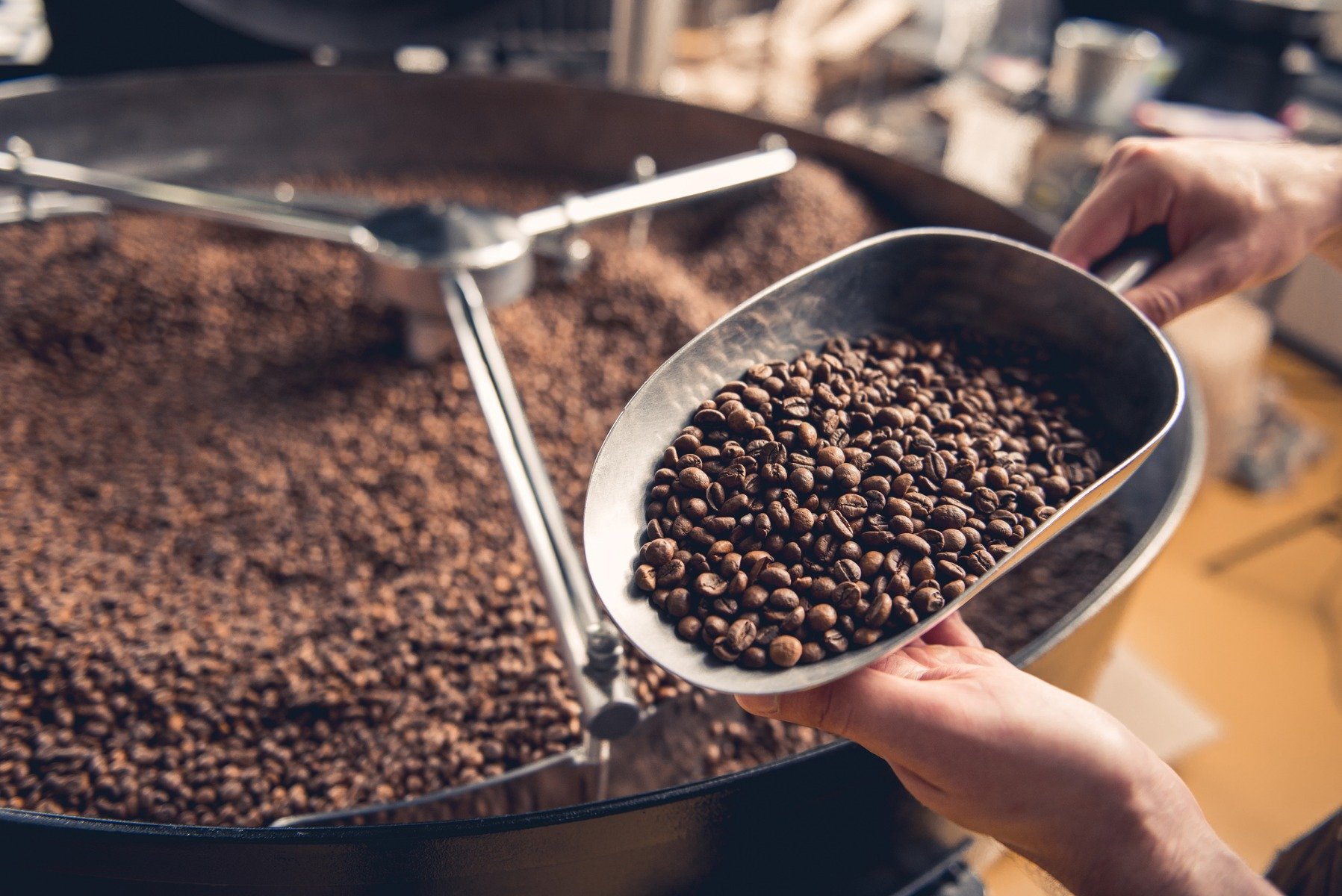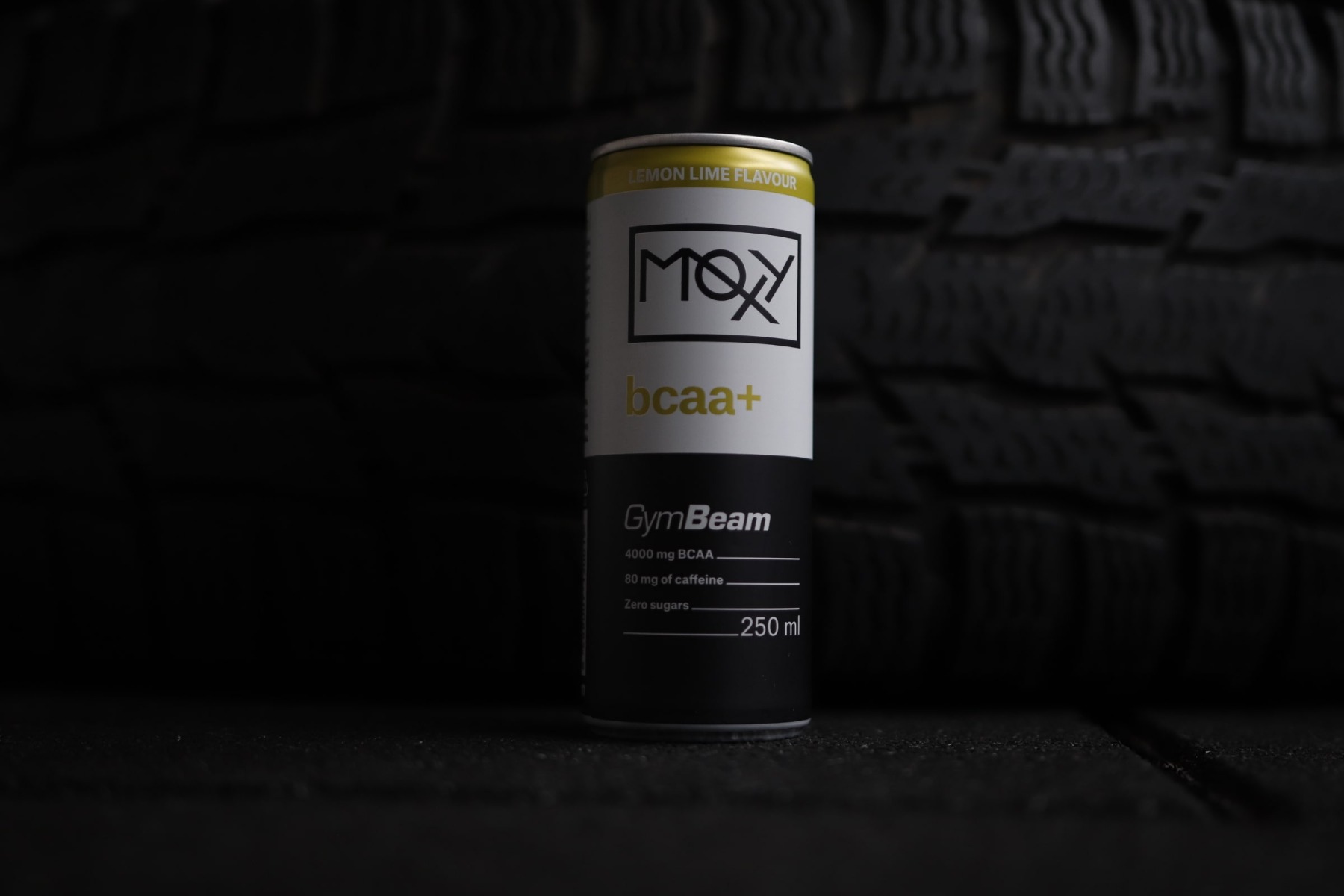Nowadays more and more people are using caffeine instead of the pre-workout stimulant as the main pre-workout cheer. But how is it possible that on the one hand a cup of coffee provides some people with the necessary energy , while on the other hand it causes fatigue and poor concentration in others? Let’s take a look at the benefits of caffeine and how you can use it to make your workouts more effective.
Caffeine – why does caffeine affect some and not others?
The Canadian study examined in detail how the human body deals with caffeine. [1] Nutritionists and researchers at the University of Toronto studied 101 male athletes with an average age of 25 years. This group included cyclists, marathon runners, skiers, baseball players, boxers, and powerlifters. With the help of saliva samples, the researchers were able to determine the caffeine value that each of the athletes could process in their metabolism . And how did you do it? Our bodies contain a gene called CYP1A2. Changes in our DNA can affect the effectiveness of this gene against caffeine processing . Based on the results, they divided groups into people with fast and slow metabolism and proved that it was simply in your genes whether or not caffeine affected your performance.

How did the research work?
All of these athletes came to the test center around once a week for 3 weeks receive a caffeine or placebo pill . The athletes rested for 25 minutes and then did some warm-up exercises. They continued with a pre-arranged combination of exercises, including what is known as the Wingate test. The highest aerobic strength or cycling on a stationary bike for 10 kilometers was measured.
After 4 weeks, the researchers compared the training results and the results of the CYP1A2 genetic test and determined that caffeine helped 49 out of 101 athletes (with fast metabolisms) and improved performance by 6.8% . The other 44 athletes (with slow metabolism) showed no change in performance, while 8 athletes with slow metabolism recorded a performance decrease of almost 14% – due to their CYP1A2 gene response to caffeine.
Where does caffeine come from?
Caffeine is a powerful insecticide in nature that plants produce to kill their enemy – a pest . As with chocolate or pomegranate, the history of caffeine goes back to the time of our ancestors. There are several stories of its origins, including a Chinese legend in which the ancient Chinese emperor Shennong accidentally discovered caffeine when some coffee leaves accidentally fluttered into his pot of boiling water 3000 years BC.
Whether it is true or not, it seems that people have known about the effects of caffeine drinks since ancient times. The ancient Chinese philosopher Lao-Tzu called this energetic fluid as early as the 6th century BC. “The elixir of life”.
Coffee has more than a rich history that goes back to the Arab cultures from the 14th to 15th centuries. Besides the great merchandise, he was too a popular cheer and way not to fall asleep during evening prayer. From here it was just one step to get to Europe through the tea and hot chocolate shop. Much later, around the 19th century, caffeine was first discovered by German chemists and shortly afterwards by their French colleagues in an isolated form. Hence the name “kaffee”, which means coffee in German and French. Nowadays we get it most often as an extracted product from plants.
How does caffeine affect the physical performance of athletes?
Caffeine affects the central nervous system by stimulating the spinal cord, irritating muscle fibers and reducing the perception of fatigue and muscle pain . It has been shown to improve physical performance in all sports. It should be noted, however, that caffeine begins to work 30 to 45 minutes after use . So if you drink your cup of coffee shortly before your workout, the expected effect can occur later .
4 main benefits of caffeine for athletes
1. Improved concentration
By increasing dopamine and adrenaline, caffeine can have a positive effect on mood and concentration. However, when you drink coffee regularly, dopamine production decreases so your body only needs caffeine to bring dopamine levels to normal. At this point, increased concentration can only be a temporary matter.

Caffeine can also reduce “working memory”, even in people who do not receive caffeine regularly, probably due to strong body stimulation . A study published in the Journal of Strength and Conditioning found that caffeine given before strenuous exercise can increase exercise intensity and improve concentration. Caffeine intake can also improve reaction time, which can be particularly helpful in sports that require quick decision-making – such as exercising. B. football or basketball.
2. Increasing physical and strength performance
A dose of 400 to 600 mg of caffeine is one of the most reliable methods to temporarily increase strength and physical performance . People who infrequently take caffeine tend to experience significant improvements in physical performance, especially during aerobic exercise or weight training. Caffeine can also play a role in recovery after exercise. Taking caffeine with carbohydrates can improve the state of the glycemic stock , which is very important for regeneration, especially if you exercise regularly or more than once a day.
Glycogen (a form of storage of glucose in the body) is the main fuel for muscle mass, and when it is reduced it makes you feel tired. The second “fuel” in our body is produced by fat reserves. As long as glycogen is available, working muscles can accumulate fat. Caffeine helps mobilize fat stores and instructs the muscles to use the fat for fuel. After taking caffeine before a workout, the first 15 minutes are critical for glycogen when caffeine has been shown to reduce glycogen storage utilization by nearly 50%. Therefore, muscle glycogen is only available as fuel in later training phases, which increases performance and prevents the onset of fatigue quickly. Therefore, caffeine prefers the use of fat stores as fuel instead of glycogen, which in addition to performance also supports fat burning.

Caffeine also helps block certain receptors in the body that are responsible for making us feel tired. This allows us to do more reps and add overall energy and endurance to the workout. A 2012 study published in the Journal of Strength and Conditioning Research found that 180 mg of caffeine consumed 60 minutes before exercise significantly increased physical performance during exercise , resulting in more bench press reps, Deadlift or squat. The caffeine-supplemented group also had decreased perception of exertion. In addition, caffeine has improved lower body strength and running performance .
3. Support in burning fat
There are two main reasons why caffeine can help in burning fat: the thermogenic effect (in the short term, caffeine can increase body temperature) and the weaker one lipolytic effect where caffeine can cause triglycerides to release fatty acids in the long term and the body can use them as “fuel”. There are also several studies showing the ability of caffeine to burn fat during exercise. Caffeine stimulates the nervous system and increases adrenaline hormone levels. Both signal the body to burn fat. While this ability is not directly related to fat loss, a combination of caffeine, a balanced diet, and an appropriate exercise plan can help you shape your figure.

Caffeine can increase the amount of so-called relaxation energy, the number of calories that you burn up to 3 hours after consumption. Of course, this doesn’t mean you can eat everything in your hand, but an extra 200 to 300 calories a day can result in a noticeable change in your weight.
4. Reducing Muscle Fatigue
Believe it or not, studies have shown that caffeine significantly reduces muscle fatigue by increasing the perception of exertion / Reduced pain during your workout. With less muscle fatigue, your performance is better and you can even repeat some exercises that you would not otherwise have the energy to do. More repetitions and more work mean better results!
Caffeine and stimulants before Training
As can be seen from the above research, everyone reacts differently to caffeine. So it is It is up to you whether you decide to have a cup of coffee, caffeine tablets or a pre-workout stimulant before your workout. However, sometimes caffeine is one of the ingredients in the pre-workout stimulant. This is mainly because caffeine is one of the most powerful psychoactive stimulants that stimulates the central nervous system. It is its influence on our nervous system that can provide energy, improve concentration and prevent tiredness.

Does caffeine have any side effects?
But of course you can have too much good and that also applies to caffeine. Ingesting large amounts of caffeine can lead to anxiety, nervousness, increased blood pressure or nausea.
(De-) hydration
Caffeine has been shown to produce a slight diuretic effect in the human body, which causes a feeling of dehydration. However, the effect is negligible. Scientific studies have shown that caffeine drinks, just like decaffeinated drinks, provide moisture to the body . Even so, increasing your fluid intake while consuming caffeine is a very good idea, especially if you are exercising in a hot and humid environment .
Fatigue
Although many of us believe That caffeine should overdo us, the high amount of caffeine can do just the opposite. It was found that people who received an extremely high dose of caffeine (1000 mg / day) were more nervous, tired and stressed. In people who did not use caffeine often , however, such symptoms can also occur. One study tested 25 healthy men and those who were given more than 300 mg of caffeine per day, reported that they felt much more stressed than men who took a placebo. However, the caffeine ratio varies from coffee to coffee. For example, a large coffee (“grande”) in Starbucks contains around 330 mg of caffeine.

Addiction
It is known that caffeine is addicting. Addiction can occur if you take more than 200 mg per day. You can be accompanied by a variety of symptoms during the day, lasting an average of 2 to 9 days, including headaches, anxiety, depression or varying appetites for whatever food you see. You can reduce these side effects by reducing your doses to the amount needed . In the context of addiction, a study was conducted of 213 participants who were taking caffeine. Participants were asked to fill out a questionnaire after 16 hours without caffeine. Based on the results of the questionnaire, it was shown that people who received caffeine on a daily basis had headaches and felt tired .
Increased blood pressure and palpitations
First of all, it should be noted that these negative symptoms are individual for each person . A study of the effects of caffeine on the heart found that high doses of caffeine can cause rapid heartbeat and palpitations. In a study of 51 people with heart problems, however, no negative effects were found even after taking 100 mg of caffeine for 5 hours. However, if you feel that caffeine is negatively affecting your body or your heart , you should consider reducing your daily dose.
What are the most popular sources of caffeine?
A cup of coffee, tea or even caffeine tablets. These are also ways how to take caffeine. Let’s take a look at the most popular sources of caffeine and their advantages and disadvantages.
Coffee
- Filtered coffee: 60-180 mg in 170 ml
- Espresso: 70-80 mg in 44 ml
- Coffee without caffeine: 2-5 mg in 170 ml

Who wouldn’t love the smell of freshly ground coffee. This form of caffeine intake can undoubtedly be rated number one. This is also evidenced by the fact that many athletes currently prefer a cup of coffee to a pre-workout stimulant. The biggest advantage is quick preparation and a large selection of coffee types. However, you shouldn’t forget that you can have too much good, so it is necessary to have some limits on your favorite coffee as well.
Bottles / cans -Coffee drinks
A widely used product, usually with added protein in the form of milk with a coffee aroma / flavor . However, it is very important to pay attention to the nutritional values of these products as many of them contain extreme amounts of sugar that your body will certainly not like.
Energy drinks
Energy drinks are good for the body, but contain large amounts of sugar unless you choose some “sugar-free” versions that are becoming increasingly available will. But here, too, you shouldn’t overdo it with energy drinks.
Tea
The caffeine content in tea varies greatly depending on the type of tea. However, it is known that black tea usually contains more caffeine than green tea.
Various energy gels
Energy gels were specially developed for endurance athletes who perform heavy physical activities. However, it is not the rule that all gels must contain caffeine. Those that contain it are said to promote low blood sugar levels in athletes . Energy gels must be used with a large amount of water in order to achieve better absorption of the gel.
Caffeine tablets
Caffeine- Tablets are one of the most effective ways to ingest caffeine without finding out if you are actually taking the required dosage without any other unnecessary substances. The downside, however, is that 1 heavy tablet can cause nervousness or other side effects. Therefore, you should start with low doses and slowly get your body used to caffeine.
Green tea extract
- unknown caffeine content
Although data shows that green tea affects your metabolism , most manufacturers don’t disclose the exact caffeine content of this fat burner.
BCAA Energy Drinks
BCAA Energy Drinks have been enjoying great popularity lately, mainly due to the taste of the energy drink and the ability to deliver energy and regeneration rolled into one. One of the ingredients in BCAA Energy Drinks is precisely caffeine, which guarantees a long-term energy supply. By the way, have you tried our new BCAA Energy drink in a can?

The most frequent questions related to caffeine
1. Does caffeine reduce the effects of creatine?
Caffeine has not been shown to adversely affect the effects of creatine during aerobic exercise or HIIT training. On the contrary, it has been proven that caffeine is beneficial for the overall result of the workout.
2. Do I need to take caffeine regularly?
There are certain benefits associated with regular caffeine intake , and there are also benefits with occasional use. It’s just up to your preferences and your caffeine tolerance.
3. Are energy drinks harmful to us?
Case studies have shown that energy drinks can particularly affect our cardiovascular system. If you only get the recommended daily allowance , energy drinks generally have no negative effects on the body. However, it should be noted that most energy drinks are high in sugar in addition to caffeine. Therefore, always check the nutritional values of the drink in addition to the composition or choose the sugar-free version.
4. How does caffeine work in our brain ?
You get tired during the day when adenosine connects to the so-called A1 receptor in your brain . Caffeine prevents adenosine from combining with this receptor, which helps fight fatigue.
5. What is a safe dosage of caffeine?
Safe caffeine dosage is a very relative term as it depends on many factors as well as your health. Some people don’t experience negative symptoms after drinking more cups of coffee each day. On the other hand, a cup of coffee is enough for another group of people and you Blood pressure can rise quickly, you have insomnia, headaches, you can suffer from nervousness and fatigue. The safe dose of caffeine for adults is 400 mg per day . Pregnant or breastfeeding women should not consume more than 200 mg / day . People with cardiovascular problems should keep caffeine doses to a minimum.
This illustration shows the amount of caffeine (mg) found in the popular beverages we normally consume. The highest amount, 280 mg of caffeine, is contained in the energy drink JOLT, while a cup of ground coffee contains around 163 mg of caffeine.
How many drinks do we have to drink to get the recommended limit of 400 mg caffeine?
This illustration shows how much energy drinks, coffee, black or green tea You would have to drink to achieve a caffeine dose of 400 mg .
If you want to improve your athletic performance, there are a few things you shouldn’t miss.
Dosage
You can already feel the effects of caffeine at 20 mg (0.3 mg / kg of your body weight). If you’ve never used caffeine before, start with the lowest possible dose. Many people consume large amounts of caffeine without realizing the strong effects on their metabolism. If you drink a cup of coffee with 100 mg of caffeine in the morning, then 150 mg in a fat burner (with caffeine) and 200 mg before your workout, this is the amount of caffeine that symptoms likeCan cause tremors, anxiety and nervousness or palpitations . It is therefore necessary to reduce the dosage and adapt it to your body, your physical performance or your abilities.
Timing
You can check the caffeine level in your blood 60 to 90 minutes after Increase consumption. Therefore, you should take it 1 to 2 hours before training. Remember that caffeine has a relatively long duration of action of around 6 hours. So if you take tablets containing 200 mg of caffeine in 18 hours, you will still feel half that dose in your body until around midnight. This can adversely affect your regular sleep cycle. You should also be very careful with caffeine if you have heart problems or suffer from heart disease.
In what form do you take caffeine? Is It Better Than A Pre-Workout Stimulant? Let us know in the comments and if you liked the article, support it by sharing it.
